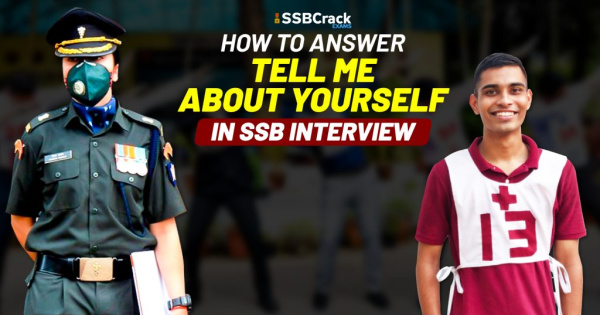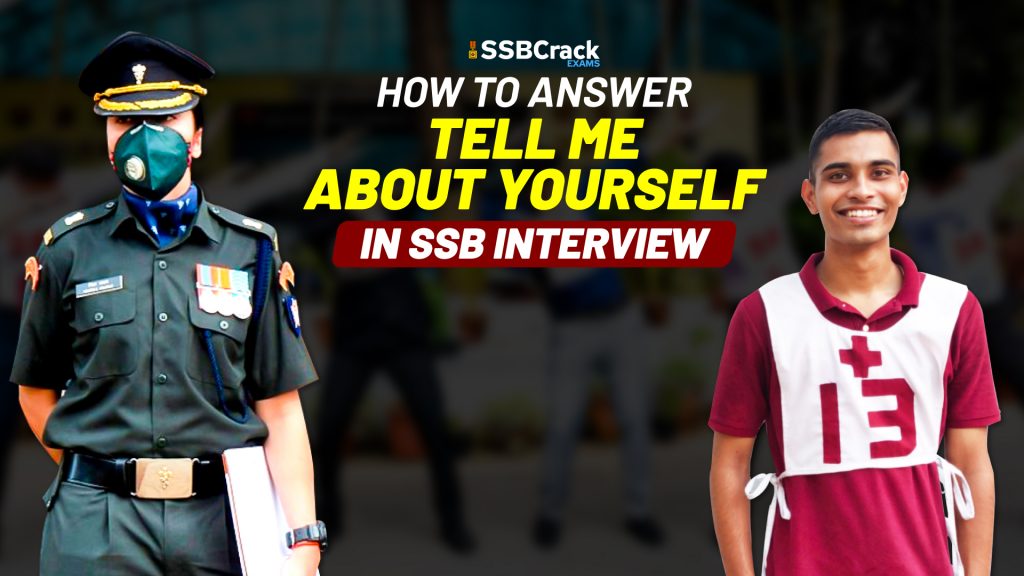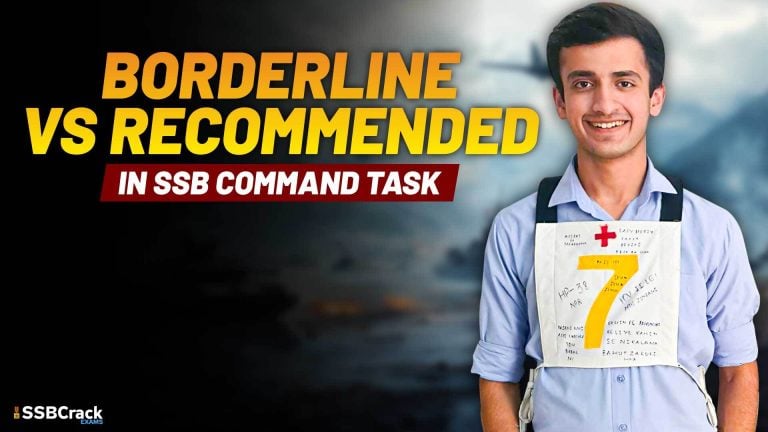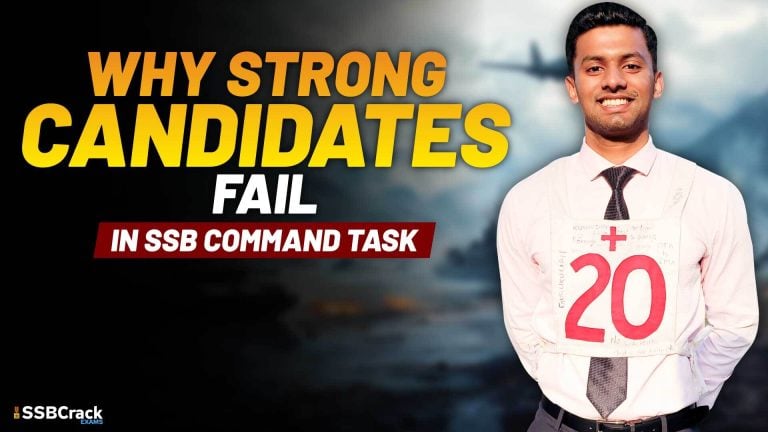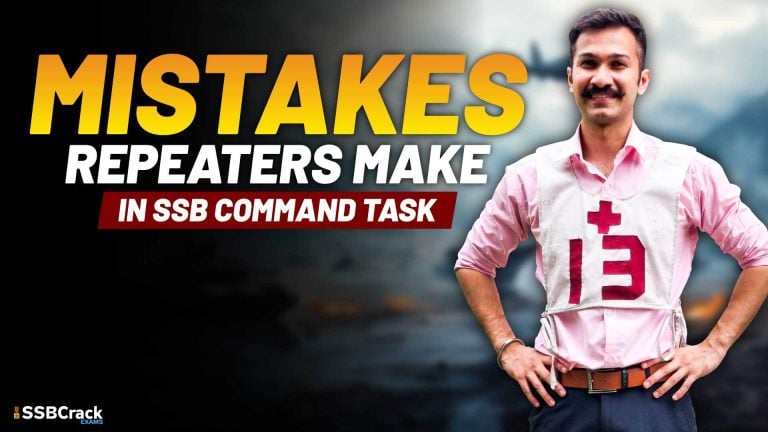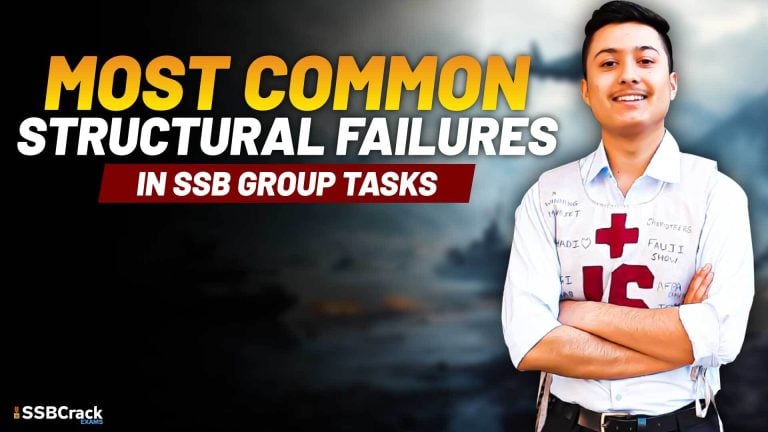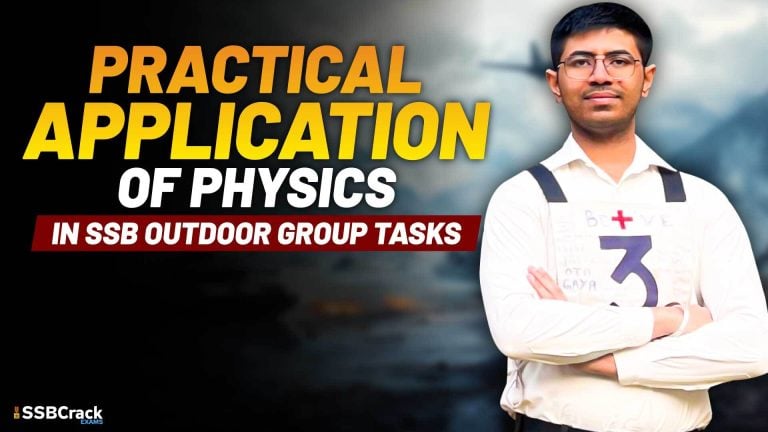A personal Interview in SSB is a one-on-one conversation of a candidate with the Interviewing Officer. It enables the Interviewing Officer (IO) to assess the personality of the candidates by posing general and technical questions.
The Interview is generally taken by the President or the Vice-President of the SSB Board to assess the ability and suitability of the candidate for a career in the Armed Forces.
The Objective of the Personal Interview
A personal Interview is generally Carried out to find if the candidate is suitable for joining the armed forces or not. The Interviewing Officer generally finds out if the candidate is having all the 15 OLQs or not.
How to answer “Tell Me About Yourself”
The most common question asked in the SSB Interview is this. Many candidates find it easy and some difficult. Candidates find it hard to select the area and limits that they have to cover while responding to this question. When you are asked this question, try to answer it in an organized format.
A proper format should be
- Basic Introduction – You should start your answer with proper instructions of yours. Things like your name, your parents’ name, your schooling, your marks, your current city, etc.
- About your occupation – Followed by your basic introduction, you will answer now what you are currently doing. If you are doing a job, or if you are currently studying, state it. Don’t go deep in your occupation, only some of the introduction is more than enough.
- Habits/ Interests – Once you have told about your occupation, now tell the interviewer what you are interested in. For example, if you like cycling, say ” Sir my hobby is to go cycling on the weekends”. You should also state some of your interests.
- Achievements – Lately, you should add your achievements to your answer. Any kind of achievement is an achievement, whether you were the SUO in your NCC years or if you were the technical lead tell this to your interviewer.
Avoid nonessential Matters – Don’t include nonessential matters in briefing your personality. Your failures, shortcomings, etc. should not be included in this part. It doesn’t mean that you don’t have any shortcomings, or that you have never faced failures. Just brief your time when you are asked about them.
Conclusion
In the Interview, never tell a lie. The assessors are smart enough and they will anyhow find out about your lie. When this question is asked, you just have to portray your simplicity with all your achievements and personality.
Never exaggerate yourself in front of the IO. Focus on point-wise description which requires practice. Always practice this question in your house or anywhere. This is a static question and the answer to it is also static that is your past and your present. The only thing that changes is what more you achieve in the future. Your job change, any award, etc. It is never bad to practice or rehearse but what’s worse is to lie. Be honest while answering the IO and always remain attentive while listening as well as while giving your answers.
Important things to remember
- While telling about your native place, tell the distance of that place from a major place nearby. Suppose you say “I hail from village Xyz, you should know that the Interviewing Officer does not know where it is situated (if it is not a big Village). You must tell the address like — Sir, I hail from village A which is in district B, and it is approximately X Kms far away from the Capital of the state or NCR.
- Give a detailed answer where required so that the Interviewing Officer does not need to interrupt you in between. Suppose you are telling about your schooling, Don’t say ” Sir I have done my 10th and 12th from DPS”, add your percentage with that in a crisp form.
To crack the SSB interview, You can join our SSB interview live classes batch and we recommend you to Enroll SSB INTERVIEW ONLINE COURSE. Trusted by thousands of defence aspirants.
Also Read:
